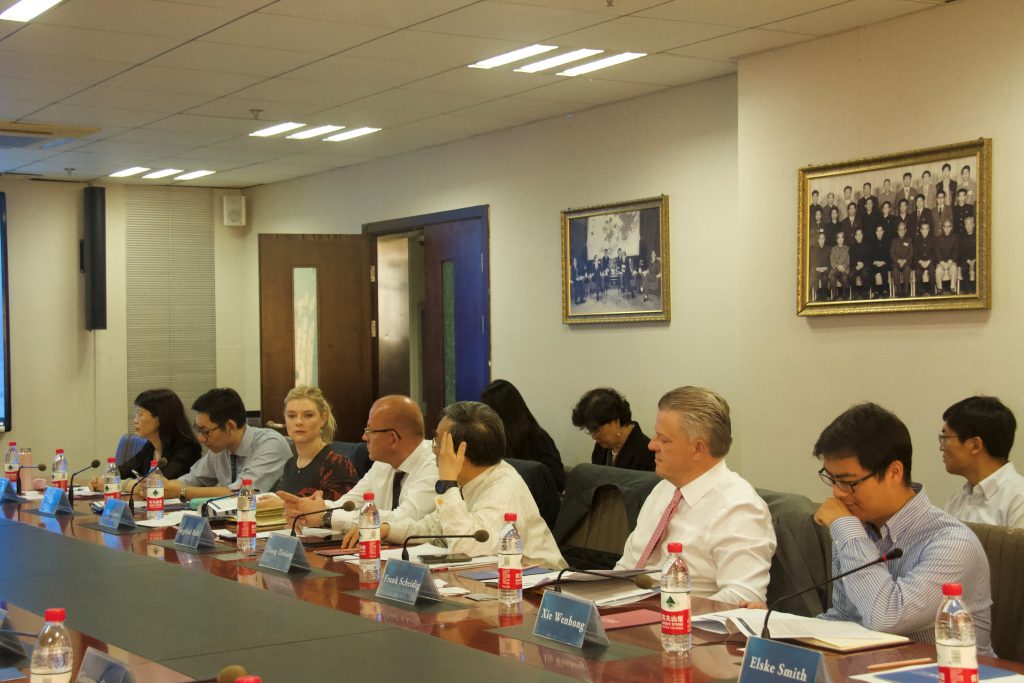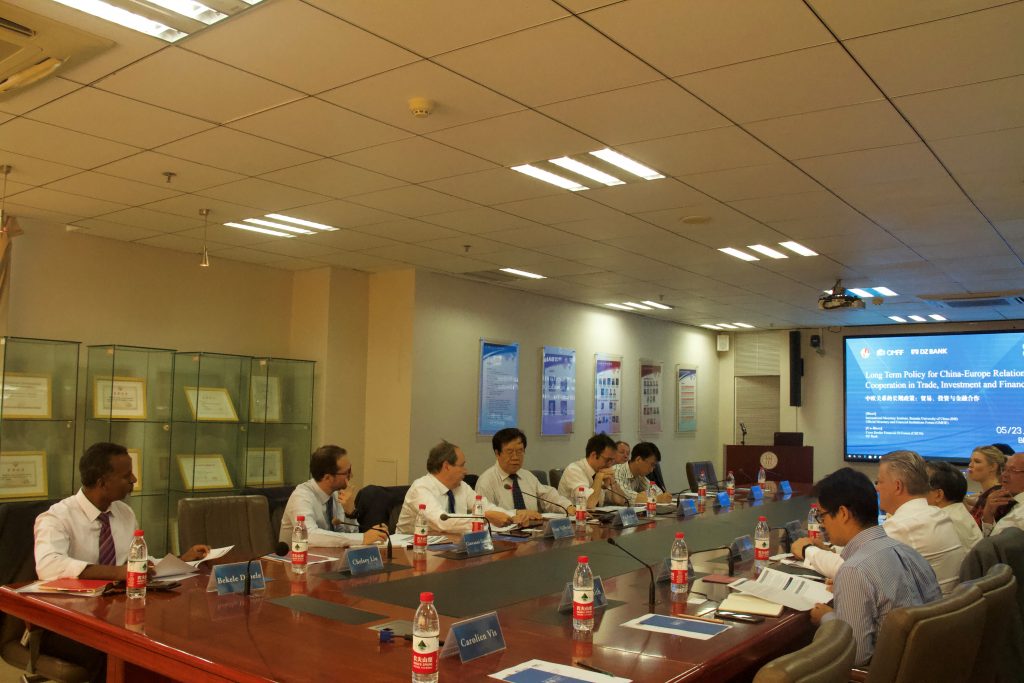Roundtable on Long-term Policy for China-Europe Relations: Cooperation in Trade, Investment and Finance
2019-05-23 IMI The participants had a discussion on “Chinese and European Priorities in Finance, Investment and Trade” and “Multi-Currency International Monetary System”. For the first topic, Zhang Zhixiang believed that with a long history of trade, China and Europe can strike a balance between seeking common ground and reserving differences when cooperating with each other. We should, among other things, focus on liquidity and specific practices in different situations. Hans Vijlbrief held that Europe seeking global cooperation will last dozens of years. We should bear in mind the financial crises in the past decade, and give full play to the cooperation forum and cross-border institutions. In particular, Europe should reach a consensus on policies with China. Giovanni Garcea reviewed the debt crisis in Greece. He said for Europe, there is still a long way to go to reach a win-win scenario through cooperation. Meanwhile, because of its complexity, debt crisis should be kept a close eye on. Frank Scheidig said that Sino-Euro cooperation can draw lessons from France and the U.S., and give full play to fintech, commercial banks, cross-border institutions and emerging economies.
The participants had a discussion on “Chinese and European Priorities in Finance, Investment and Trade” and “Multi-Currency International Monetary System”. For the first topic, Zhang Zhixiang believed that with a long history of trade, China and Europe can strike a balance between seeking common ground and reserving differences when cooperating with each other. We should, among other things, focus on liquidity and specific practices in different situations. Hans Vijlbrief held that Europe seeking global cooperation will last dozens of years. We should bear in mind the financial crises in the past decade, and give full play to the cooperation forum and cross-border institutions. In particular, Europe should reach a consensus on policies with China. Giovanni Garcea reviewed the debt crisis in Greece. He said for Europe, there is still a long way to go to reach a win-win scenario through cooperation. Meanwhile, because of its complexity, debt crisis should be kept a close eye on. Frank Scheidig said that Sino-Euro cooperation can draw lessons from France and the U.S., and give full play to fintech, commercial banks, cross-border institutions and emerging economies.
 For the second topic, the participants discussed on the evolution and the future of world currency. Xia Le analyzed some problems in RMB internationalization, reviewed the internationalization process, and shared his opinions about the application of Triffin Dilemma on the withdrawal and floating exchange rate in current financial market and the reform and opening-up of financial markets. Bill Block believed that there are underlying reasons for the US dollar to dominate the market in the past decades. The emergence of world currency is the result of natural selection in the financial market. Zhang Zhixiang held that the status of different currencies in the international market might be influenced by the differentiated economic conditions of countries, and political factors should also be considered. Bekele Debele said the performance of currency in the international market is closely linked with national policies. A unitary currency market didn’t fit in the current trend of development.
For the second topic, the participants discussed on the evolution and the future of world currency. Xia Le analyzed some problems in RMB internationalization, reviewed the internationalization process, and shared his opinions about the application of Triffin Dilemma on the withdrawal and floating exchange rate in current financial market and the reform and opening-up of financial markets. Bill Block believed that there are underlying reasons for the US dollar to dominate the market in the past decades. The emergence of world currency is the result of natural selection in the financial market. Zhang Zhixiang held that the status of different currencies in the international market might be influenced by the differentiated economic conditions of countries, and political factors should also be considered. Bekele Debele said the performance of currency in the international market is closely linked with national policies. A unitary currency market didn’t fit in the current trend of development.
